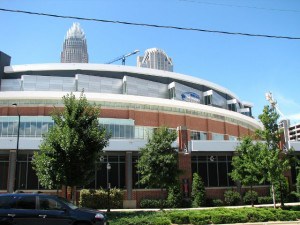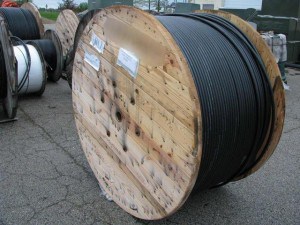Which is more important:
- Spending hundreds of millions of taxpayer dollars to finance sports facilities, stadiums, and “incentive packages” to attract and keep major sports franchises calling your city home;
- Building quality digital infrastructure that will deliver 21st century broadband service at affordable prices for every local citizen that wants the service.
Here in western New York, the city of Buffalo — the third poorest city in the nation with 28 percent of its residents living in poverty and suffering chronically high unemployment — is about to the recipient of a one billion dollar bailout courtesy of the state government (a/k/a taxpayers). That, even as some in the city are howling that the promised tens-to-hundreds of millions in promised renovation funding for the Ralph Wilson (Buffalo Bills) Stadium is apparently not included.
While hundreds of millions of taxpayer dollars are readily available to finance sports stadiums, getting privately financed bonds for public broadband is somehow the real crime in states like North and South Carolina. North Carolina already has legislation in place that virtually assures broadband service is under the control of the state’s largest phone and cable companies, or it simply is not provided at all. Evidently in a battle over worthwhile public spending, financing a reported $260 million for Charlotte, N.C.’s Time Warner Cable Arena remains a higher priority than making sure the people of North Carolina have decent broadband service.
South Carolina this week is considering extending a similar courtesy to companies like AT&T and Time Warner Cable. They need better broadband even more than their neighbors to the north.
Happily, broadband advocate Craig Settles has found a way for broadband lovers to have their cake and eat it too.
Why not construct public, non-profit broadband networks by selling ownership shares to the general public?
All of you who believe in broadband’s impact on economic development (or are a little jealous of stories like this about Chattanooga’s 1 gigabit network), should look to the Green Bay Packers of the NFL for the key to financing your broadband network.
Yeah, they kind of choked in last Sunday’s playoff game against the N.Y. Giants. But the team is a surefire winner when it comes to raising money. The franchise raised $70 million to rehab its football stadium (Lambeau Field) by selling 280,000 stock shares to individuals at $250 a pop. They pulled off this amazing feat in just five weeks!
With apologies to New Orleans Saints fans — “Who Dat” is bringing big bucks into town for a project that will pump up the local economy? The citizens of Green Bay. Literally. The Green Bay Packers are a nonprofit corporation owned by local residents and businesses. Packers pride enabled Green Bay to outdo tech companies that can’t get an initial public offering off the ground, let alone raise $70 million.
If Green Bay can do all this for a football field, can’t your hometown or county convince constituents to raise just a few million for a broadband network?
$250? That’s the combined price of today’s cable and cell phone service over just a single month. Should a private non-profit group act as coordinator for the project, they can walk right past existing restrictions on municipal broadband enacted at the behest of big cable and phone companies. Self-financed fiber to the home service could pay dividends… to customers instead of Wall Street.
Settles lays out the parameters and the challenges, namely fighting that old meme that only giant telecom duopolies know how to run a broadband business. But as we’ve seen from small scrappy private providers like Sonic.net in California and publicly-owned EPB Fiber, providing superior service at a reasonable price will bring customers to your door. Even more so if they also happen to own the door.


 Subscribe
Subscribe


So think about it this way. In five weeks, they could have told the local incombents to hit the road by running Fiber service. $700 Million is more than enough to wire up a ton of places with Fiber. I know sports are important for people, but the emphesis in it everywhere is unbelieveable. It’s entertainment that lasts for a little while and then dies off but costs a ton.
Answer to the title: Because then the “elected” officials in the communities wouldn’t be able to get paid off by the Time Warner’s and Comcast’s of the cable industry, you know, like what’s her name Avila from NC.